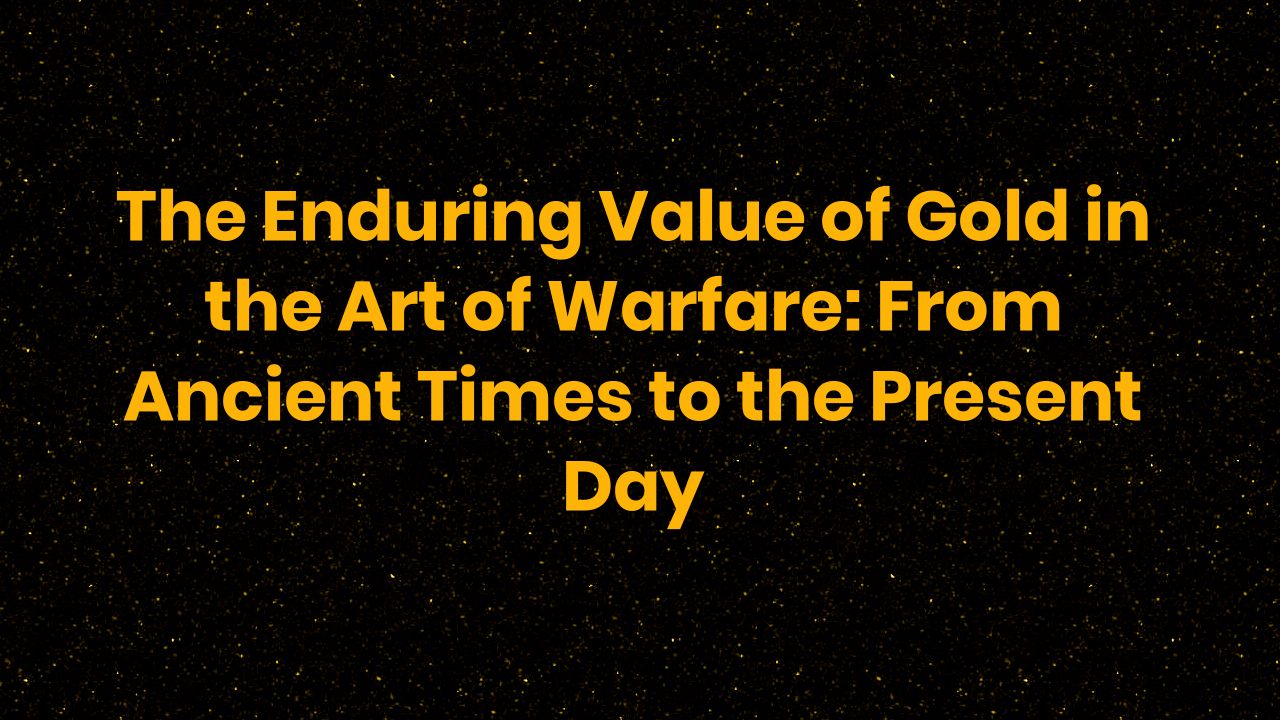
Table of Contents
Introduction: The Timeless Significance of Gold in the History of Warfare
Warfare is a practice that has existed for as long as humans have. And throughout history, gold has been an indispensable aspect of warfare. From ancient times to modern-day conflicts, the presence of gold has impacted the tactics, strategies, and outcomes of battles. Whether it is as a symbol of power and prestige, a means of financing war efforts, or as a weapon itself, gold has played a crucial role in the art of war.
Gold and the Art of Conquest: How Gold Has Shaped the Outcomes of Battles
Gold has been a driving force for many battles and conquests throughout history. The desire for gold and other precious metals and resources has propelled armies to conquer foreign lands and engage in wars of conquest. The quest for gold has led many powerful civilizations to clash, prompting significant shifts in power dynamics. From the Greek conquests led by Alexander the Great to the discovery of the New World by European powers seeking gold and resources, the struggles for wealth have reshaped the world again and again.
The Role of Gold in the Construction and Maintenance of Armies
In addition to shaping the outcomes of battles, gold has played a critical role in the construction and maintenance of armies. Armies have traditionally required vast resources to train, equip, and pay their soldiers. Gold has long been a means of financing war efforts and securing the necessary resources for armies. It has often been the difference between success and failure on the battlefield, with wealthier armies capable of procuring superior weaponry and equipment, ensuring their combat readiness at all times.
Gold’s Function as a Symbol of Power, Wealth, and Prestige in Military Contexts
Gold has also functioned as a symbol of power, wealth, and prestige in military contexts. From the golden eagles of Rome to the gold braid on the uniforms of high-ranking military officials, gold has always been synonymous with status and power. The possession of gold has conferred a form of legitimacy and authority over others, often prompting reverence and awe. Its use in symbols of military power has remained unchanged, with gold still serving a highly prized function in modern militaries.
The Role of Gold in Modern Warfare: From Financing War Efforts to Weaponization
Gold’s role in warfare has evolved over time, with modern warfare presenting new challenges and opportunities. In the modern era, gold has continued to serve as a means of financing war efforts, with nations often using gold reserves to purchase arms and equipment. However, gold has also been weaponized in modern warfare, with gold nanoparticles being used in novel ways to develop new weapons and technologies.
Conclusion: Why Gold Will Continue to Play a Pivotal Role in the Future of Warfare
In conclusion, the role of gold in warfare has been substantial, and it will continue to play a pivotal role in the future of warfare. As wars become more sophisticated and resource-intensive, the possession of gold will become increasingly valuable. As new weapons and technologies are developed, gold will likely play a critical role in their construction and maintenance. Furthermore, gold will remain a potent symbol of power and prestige in military contexts, shaping military hierarchies and dynamics. As such, gold’s significance in the art of war is enduring and timeless.





